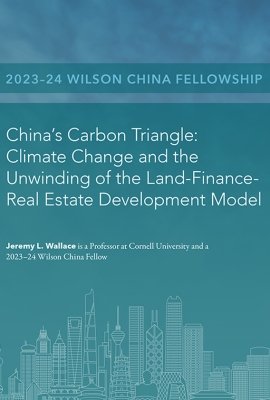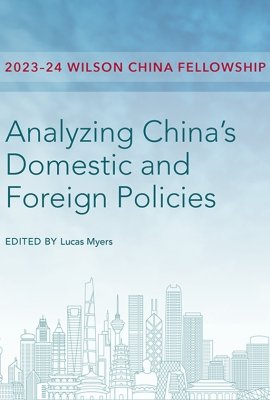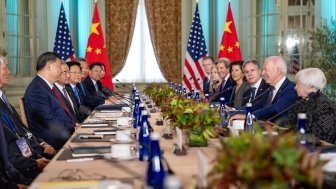Jeremy Wallace
Wilson China Fellow
Professional Affiliation
Professor of Government and Director of the East Asia Program at Cornell University
Expert Bio
Jeremy Wallace is a professor of Government at Cornell University and serves as Director of Cornell’s East Asia Program. He studies authoritarianism focusing on China, cities, statistics, and climate change. He is the author of two books, including the recently published Seeking Truth and Hiding Facts: Information, Ideology, and Authoritarianism in China, which argues that a few numbers came to define Chinese politics, until they did not count what mattered and what they counted did not measure up. His research has been published in American Political Science Review, Journal of Politics, British Journal of Political Science, International Organization, and China Quarterly, among others. He also writes for popular outlets such as Foreign Affairs, Foreign Policy, Noema, Phenomenal World, The China Project, the LA Times and the Washington Post.
Expertise
- China's decarbonization initiative
- Chinese development
Wilson Center Project
China’s Carbon Triangle: Climate Change and the Unwinding of the Land-Finance-Real Estate Development Model
Project Summary
China produces over 30% of global carbon emissions, making Xi Jinping’s 2020 declaration that his country would be carbon neutral by 2060 one of epic significance. A core challenge facing China’s decarbonization is shifting its economic model to break the “carbon triangle” of land, finance, and real estate. This nexus is central to the country’s political economy and accounts for a significant amount of China’s carbon emissions, yet it is incredibly inefficient in producing real value as millions of apartments lay vacant. Despite official acknowledgement of the need to shift away from real estate and infrastructure investment, pivoting has proven difficult for the country’s leaders. Yet, as with most issues in China, national-level features can obscure fascinating and contradictory patterns happening in its provinces and cities. To excavate such patterns, this project examines city-level data on economic, political, and social factors connected to local finances, debts, construction, and emissions. This analysis will improve our sense of the size and scope of what has been one of the knottiest problems holding back China’s broader decarbonization efforts. As such, it can inform both scholarship and policymakers attempting to better understand and mitigate these dilemmas.
Insight & Analysis by Jeremy Wallace
- Publication
- Energy
China's Carbon Triangle: Climate Change and the Unwinding of the Land-Finance-Real Estate Development Model

- Publication
Analyzing China's Domestic and Foreign Policies

- Past event
Wilson China Fellowship Conference 2024


